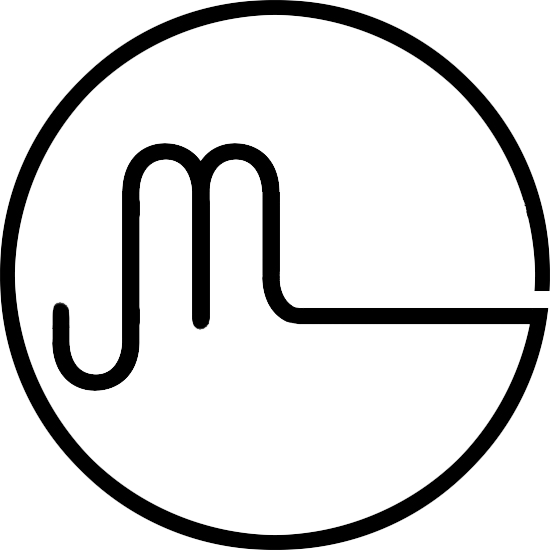Magnesium Hydroxide Water: A Cost-Effective and Bioavailable Magnesium Supplement
Magnesium is an essential mineral that plays a vital role in numerous physiological functions, from muscle relaxation and nerve transmission to energy production and bone health. Many people are deficient in magnesium due to modern dietary patterns, leading to symptoms such as muscle cramps, fatigue, headaches, and poor sleep. While oral magnesium supplements and magnesium baths are popular ways to increase magnesium levels, magnesium hydroxide water presents a highly bioavailable, cost-effective alternative.
This article explores the benefits of magnesium hydroxide water over other supplementation methods, provides instructions for making it at home, and explains how to source the necessary ingredients.
Why Magnesium Hydroxide Water?
Magnesium hydroxide (Mg(OH)₂) is a simple yet effective way to supplement magnesium. When mixed with carbonated water, it reacts to form magnesium bicarbonate (Mg(HCO₃)₂), a highly bioavailable form of magnesium that is gentle on digestion and well-absorbed at the cellular level.
Benefits Over Oral Magnesium Supplements
Higher Absorption Rate: Many common magnesium supplements, such as magnesium oxide, have low bioavailability and can cause digestive upset, including diarrhea. Magnesium hydroxide water transforms into magnesium bicarbonate, a more absorbable form that bypasses the gut-related issues often associated with other forms of magnesium.
No Laxative Effect: Unlike magnesium citrate or magnesium oxide, which can draw water into the intestines and cause loose stools, magnesium bicarbonate from magnesium hydroxide water is absorbed efficiently and does not cause digestive discomfort.
Cost-Effective: Purchasing magnesium hydroxide powder and carbonated water is significantly cheaper in the long run compared to buying pre-made magnesium supplements. The ability to create carbonated water at home, these days, can lower the costs even more.
Benefits Over Magnesium Baths
Systemic Absorption: While magnesium baths using Epsom salts (magnesium sulphate or magnesium chloride) can help with relaxation and muscle soreness, they primarily provide localized benefits. Magnesium hydroxide water ensures systemic absorption, delivering magnesium directly into the bloodstream.
More Consistent Supplementation: Bathing in magnesium is not always practical for daily use, whereas magnesium hydroxide water can be easily incorporated into a daily routine.
Cost and Convenience: High-quality magnesium bath flakes can be expensive over time, and baths require preparation and time. Magnesium hydroxide water provides an affordable and convenient alternative.
How to Make Magnesium Hydroxide Water
Making magnesium hydroxide water at home is simple, requiring only a few ingredients and minimal effort.
Ingredients and Equipment
Magnesium Hydroxide Powder: Look for high-purity magnesium hydroxide powder or "milk of magnesia" that is free from additives (such as sodium hypochlorite). Search for "pure magnesium hydroxide powder" or "food-grade magnesium hydroxide" when purchasing online.
Carbonated Water: Use plain, unsweetened, unflavored carbonated water (soda water or seltzer). Avoid tonic water, as it contains added sugars and other ingredients.
Glass Bottle or Jar: A container for mixing and storing the solution.
Instructions (makes approx. 4 weeks worth)
Measure the Magnesium Hydroxide
Use 1 teaspoon (approximately 2.5 grams) of magnesium hydroxide powder.
Add to Carbonated Water
Pour 1 litre (1000 mL) of carbonated water into a clean glass bottle or jar.
Add the measured magnesium hydroxide powder to the water and quickly close the lid as the magnesium’s reaction with the carbon will cause it to bubble.
React the Solution
The mixture will become cloudy at first. Shake or stir for 2-3 minutes initially, then again every 5-10 minutes for a few times to ensure thorough mixing.
Allow it to sit for a few hours until the solution becomes clear, indicating that the magnesium hydroxide has reacted with the carbon dioxide in the water to form magnesium bicarbonate.
Storage and Usage
Store in the refrigerator to maintain stability.
Dosage: Consume 30–50 mL per day, diluted in a glass of regular water. Start with a lower dose and increase as needed based on tolerance.
Who Can Benefit from Magnesium Hydroxide Water?
This supplement is particularly useful for:
Individuals with digestive sensitivities to oral magnesium supplements.
Those experiencing muscle cramps, restless legs, headaches, or insomnia, common symptoms of magnesium deficiency.
People seeking a cost-effective and bioavailable way to maintain adequate magnesium levels.
However, individuals with kidney disease or those taking medications affecting magnesium levels should consult a healthcare provider before supplementation.
References
Bohn, T., Walczyk, T., & Leisibach, S. (2004). "Bioavailability of Magnesium from Different Supplement Forms." Journal of the American College of Nutrition, 23(6), 745-748.
Costello, R. B., Nielsen, F., & Coughlin, J. (2016). "Magnesium and Human Health: Perspectives and Research Directions." Advances in Nutrition, 7(2), 1-10.
Gröber, U., Schmidt, J., & Kisters, K. (2015). "Magnesium in Prevention and Therapy." Nutrients, 7(9), 8199-8226.
Schuchardt, J. P., & Hahn, A. (2017). "Intestinal Absorption and Factors Influencing Bioavailability of Magnesium—An Update." Current Nutrition & Food Science, 13(4), 260-278.
